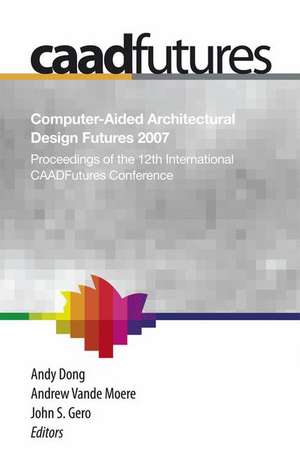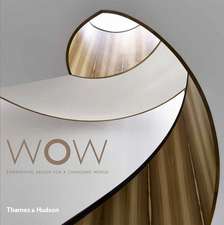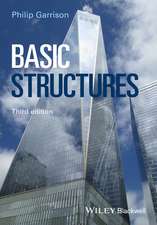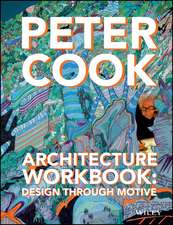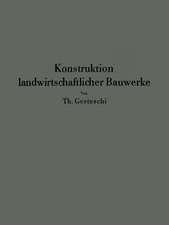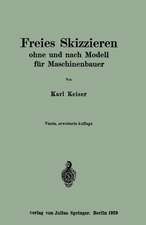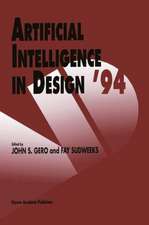Computer-Aided Architectural Design Futures (CAADFutures) 2007: Proceedings of the 12th International CAAD Futures Conference
Editat de Andy Dong, Andrew Vande Moere, Asko Riitahuhtaen Limba Engleză Mixed media product – 19 noi 2007
This volume is the proceedings of the 12th International Conference of CAAD Futures, which took place in Sydney, Australia. The internationally refereed papers in this book present the state of the art in computer-aided architectural design research. The papers in this year's conference theme, Integrating Technologies for Computer-Aided Design, provide the technological foundation for new ways of thinking about using computers in designing and the use of computers in design itself as well as in the education of designers.
Information about the 2007 Conference and this book is available at: http://www.arch.usyd.edu.au/kcdc/conferences/cf07
| Toate formatele și edițiile | Preț | Express |
|---|---|---|
| Paperback (1) | 959.50 lei 6-8 săpt. | |
| SPRINGER NETHERLANDS – 23 noi 2014 | 959.50 lei 6-8 săpt. | |
| Mixed media product (1) | 970.24 lei 6-8 săpt. | |
| SPRINGER NETHERLANDS – 19 noi 2007 | 970.24 lei 6-8 săpt. |
Preț: 970.24 lei
Preț vechi: 1183.22 lei
-18% Nou
Puncte Express: 1455
Preț estimativ în valută:
185.68€ • 201.62$ • 155.97£
185.68€ • 201.62$ • 155.97£
Carte tipărită la comandă
Livrare economică 22 aprilie-06 mai
Preluare comenzi: 021 569.72.76
Specificații
ISBN-13: 9781402065279
ISBN-10: 1402065272
Pagini: 616
Ilustrații: XIII, 602 p. With CD-ROM.
Dimensiuni: 155 x 235 x 29 mm
Greutate: 1.16 kg
Ediția:2007
Editura: SPRINGER NETHERLANDS
Colecția Springer
Locul publicării:Dordrecht, Netherlands
ISBN-10: 1402065272
Pagini: 616
Ilustrații: XIII, 602 p. With CD-ROM.
Dimensiuni: 155 x 235 x 29 mm
Greutate: 1.16 kg
Ediția:2007
Editura: SPRINGER NETHERLANDS
Colecția Springer
Locul publicării:Dordrecht, Netherlands
Public țintă
ResearchCuprins
Becoming Virtual.- Augmented Reality and Tangible Interfaces in Collaborative Urban Design.- Mutually Augmented Virtual Environments for Architectural Design and Collaboration.- Conceptual Modeling Environment (COMOEN).- Simulation of an Historical Building Using a Tablet MR System.- Becoming Educated.- Didactical Integration of Analog and Digital Tools into Architectural Education.- Aesthetic Data Visualization as a Resource for Educating Creative Design.- Is a Digital Model Worth a Thousand Pictures?.- Learning by Doing in the Age of Design Computation.- Becoming Designed.- Topology of Urban Environments.- Discovering Computational Structures in Architecture.- Plastic Surgery in the Evolutionary Design of Spatial Form.- A System for Providing Customized Housing.- Algogram: Automated Diagrams for an Architectural Design Studio.- Becoming Kinæsthetic.- Use of a Mobile Architectural Guide.- Unreal Studio.- Spacensing.- Puppeteering Architecture.- Becoming Logical.- Parametric Designing in Architecture.- Spatial Similarity Metrics.- A Parametric Representation of Ruled Surfaces.- Managing Contingency in Parametric Models through Implicit Relational Modeling.- Being Supportive.- Early Architectural Design and BIM.- Developing a Framework for Linking Design Intelligence from Multiple Professions in the AEC Industry.- Design Collaboration Using IFC.- Stretching the Trousers Too Far?.- Being Virtual.- Urban Generator.- Avatar Expression Agent in Virtual Architecture.- Does Color Have Weaker Impact on Human Cognition Than Material?.- Designing Virtual Worlds for 3D Electronic Institutions.- Becoming Tools.- Local Navigation Can Reveal Implicit Relations.- Computer-Aided Design Tools that Adapt.- Integrating Advanced Shader Technology for Realistic Architectural VirtualReality Visualisation.- Becoming Futuristic.- From Passive to Proactive Design Elements.- A Framework for the Design of Kinetic Façades.- Design Science Labs.- Morphosis.- Becoming Determinable.- Measuring Human Behaviour Using Head-Cave.- Automatic Product Color Design Using Genetic Searching.- Interpreting Architectural Space through Camera Movement.- A Novel Room Re-Layout Design Tool for Preparedness of Earthquake Disaster Using Real-Time Physics Simulation and Force-Feedback Interface.- Being Creative.- Idea Hitchhiking in the Idea Association Process.- How to Improve Creativity.- Enablement or Restriction?.
Caracteristici
Part of an ongoing conference series that has been running for 22 years State-of-the-art CAAD research and practice Broad topical coverage of applications of computing in architectural design Includes best practices about teaching and learning computing in architectural design
